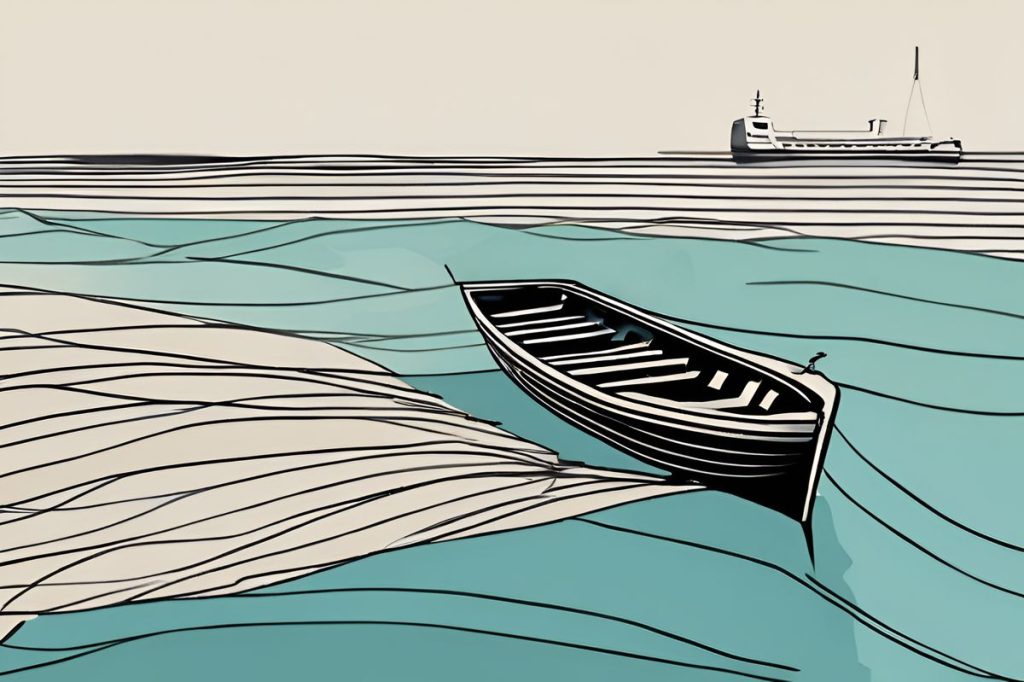The Cyprus-Gaza maritime humanitarian corridor is a crucial initiative to deliver aid to Gaza, where 70% of the population faces starvation. The EU has commended Cyprus’s efforts and emphasized the need for increased land access to enhance aid effectiveness and uphold human dignity.
What is the significance of the Cyprus-Gaza maritime humanitarian corridor established by Cyprus?
The Cyprus-Gaza maritime humanitarian corridor is a crucial initiative by Cyprus to deliver aid and alleviate the humanitarian crisis in Gaza, where 70% of the population risks starvation. This sea route complements the need for increased land access, with the EU acknowledging Cyprus’s role and calling for further cooperation to enhance aid effectiveness and uphold human dignity.
Maritime Aid Operation: Cyprus to Gaza
The European Union’s High Representative for Foreign Affairs and Security Policy, Josep Borrell, has recently acknowledged the significant step taken by Cyprus in establishing a maritime humanitarian corridor to Gaza. This initiative is vital as it aims to alleviate the dire humanitarian situation in the Gaza Strip. Borrell, during his address at the conclusion of the foreign affairs council in Brussels, underscored the alarming report from the World Food Programme. The report highlighted the unprecedented crisis in Gaza, where a staggering 70 percent of the population is at risk of starvation, with the entirety facing severe food stress.
Borrell expressed gratitude towards Cyprus for pioneering the sea route and emphasized that while this development is promising, there is still a pressing need for increased land access. Israel’s role in facilitating this access is crucial to enhance the effectiveness of aid delivery to the people in need.
Enhancing Land Access and Addressing Sanctions
In addition to his remarks on the humanitarian efforts, Borrell touched upon broader geopolitical concerns. He noted the discussions surrounding potential sanctions on Hamas, reflecting the EU’s ongoing concern with security and stability in the region. The talks included a review of the EU-Israel association agreement, brought to the table by Ireland and Spain, suggesting a reevaluation of the relationship in light of current circumstances.
Furthermore, Borrell didn’t shy away from addressing issues beyond the Mediterranean. He announced a consensus among the foreign ministers to impose sanctions on 30 individuals, both natural and legal persons in Russia, in connection to the case of Alexei Navalny. The situation in Ukraine was also on the agenda, with the establishment of a fund to support the country as part of the European peace mechanism, signifying the EU’s commitment to upholding peace and security on the continent.
International Response and Solidarity
The EU’s role in the Israeli-Palestinian conflict has often been one of a mediator and humanitarian aid provider. The maritime corridor from Cyprus to Gaza is a testament to the EU’s dedication to humanitarian assistance. It not only paves the way for more aid to reach Gaza but also sets a precedent for international cooperation in times of crisis.
The actions taken by the European foreign ministers reflect a broader strategy of the EU to maintain peace, stability, and human rights. The imposition of sanctions and the creation of support funds are examples of the EU’s proactive approach to international policymaking. These measures aim to hold accountable those who undermine democratic processes and to support nations facing challenges to their sovereignty and stability.
The Way Forward
As the EU continues to navigate the complex political landscape of the Middle East, the importance of humanitarian aid and political dialogue remains clear. The Cyprus-Gaza maritime corridor opens a new chapter in international solidarity, but it also highlights the ongoing need for comprehensive solutions that address not just the symptoms but the root causes of such crises. Access to Gaza through both sea and land is more than a logistical concern; it’s a lifeline for those trapped in a cycle of hardship, a beacon of hope signaling the world’s commitment to humanitarian relief and human dignity.
What is the significance of the Cyprus-Gaza maritime humanitarian corridor established by Cyprus?
The Cyprus-Gaza maritime humanitarian corridor is a crucial initiative by Cyprus to deliver aid and alleviate the humanitarian crisis in Gaza, where 70% of the population risks starvation. This sea route complements the need for increased land access, with the EU acknowledging Cyprus’s role and calling for further cooperation to enhance aid effectiveness and uphold human dignity.
What has been the response from the European Union regarding the Cyprus-Gaza humanitarian corridor?
The European Union, through its High Representative for Foreign Affairs and Security Policy Josep Borrell, has commended Cyprus for establishing the maritime humanitarian corridor to Gaza. The EU has emphasized the importance of providing aid to the population facing starvation in Gaza and has called for increased land access to enhance the effectiveness of humanitarian efforts.
What broader geopolitical issues were addressed during the discussions on the Cyprus-Gaza humanitarian corridor?
In addition to addressing the humanitarian crisis in Gaza, discussions during the foreign affairs council in Brussels touched upon potential sanctions on Hamas and a review of the EU-Israel association agreement. The EU also discussed imposing sanctions on individuals and entities in Russia, as well as establishing a fund to support Ukraine. These broader geopolitical concerns reflect the EU’s commitment to peace, stability, and human rights.
How does the Cyprus-Gaza maritime corridor reflect the EU’s approach to international solidarity and humanitarian assistance?
The Cyprus-Gaza maritime corridor serves as a testament to the EU’s dedication to humanitarian assistance and international cooperation in times of crisis. It not only facilitates the delivery of aid to Gaza but also showcases the EU’s commitment to upholding peace, stability, and human rights. The EU’s proactive measures, such as imposing sanctions and creating support funds, demonstrate a broader strategy to address challenges to sovereignty and stability while promoting democratic processes.

